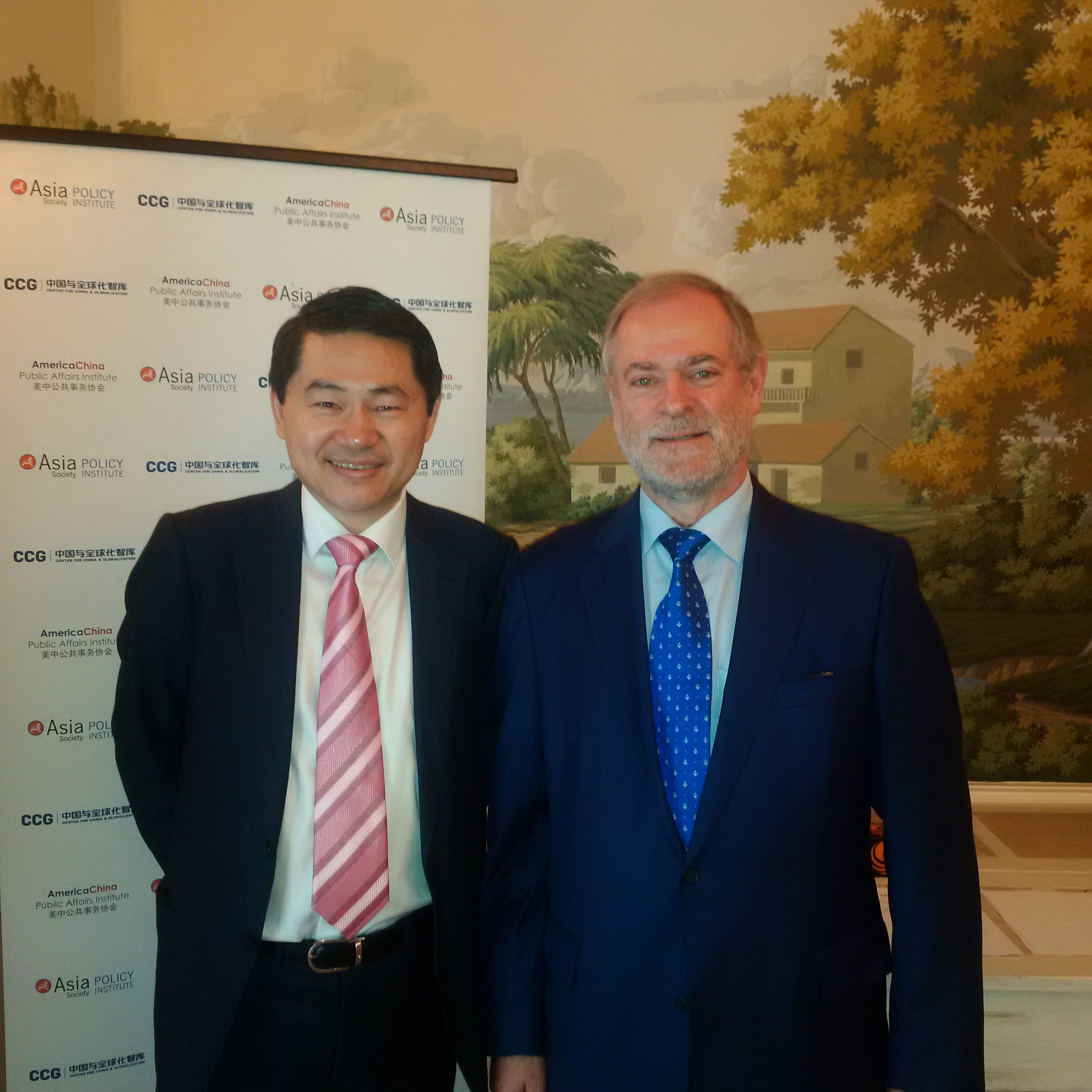As the US election campaign and the European policy debate show, there is a problematic rise in anti-free trade sentiments. As a consequence, the ratification of the Trans-Pacific Partnership (TPP) Agreement in the US congress is in danger. The companion agreement with Europe is the Transatlantic Trade and Investment Partnership (TTIP). The resistance among European policymakers against this treaty has also become increasingly stronger. Both treaties aim at fostering trade, economic growth and secure jobs. This is why I have always supported TTIP and support TPP.
In a meeting on September 10, 2016 in the Hay-Adams Hotel in Washington DC, US and Chinese think-tank leaders have debated the challenges to free trade in an luncheon in honor of Mr. Long Yongtu, the long-term Chinese trade negotiator. Chinese and US based think-tank heads agreed that the current challenges for trade are dangerous. The negotiations need to continue, and a TPP has to get finally ratified. This would be in the interest of both China and the US. However, the perspectives are not very promising.
The event was organized by the America China Public Affairs Institute, the Asia Society Policy Institute and the Center for China & Globalization. Speakers were, among others, Fred Teng, President of the America China Public Affairs Institute, Wendy Cutler, former US trade – negotiator, Huiyao Wang, President of the Center for China & Globalization, Robert Hormats, Vice Chairman of Kissinger Associates and former member of the US government, and Long Yongtu, Chairman of the Center for China & Globalization.
Klaus F. Zimmermann, Honorary Professor at Renmin University of China, Beijing, former President of DIW Berlin, former President of DIW DC, and Founding Director of IZA, and now Visiting Faculty at Princeton University and Co-Director of POP at UNU-MERIT, was also participating in the event. He was also discussing the importance of global networking on these issues with his old contact Huiyao Wang, President of the Center for China & Globalization, Beijing.
Huiyao Wang (Center for China & Globalization, Beijing) and Klaus F. Zimmermann (Princeton University)


